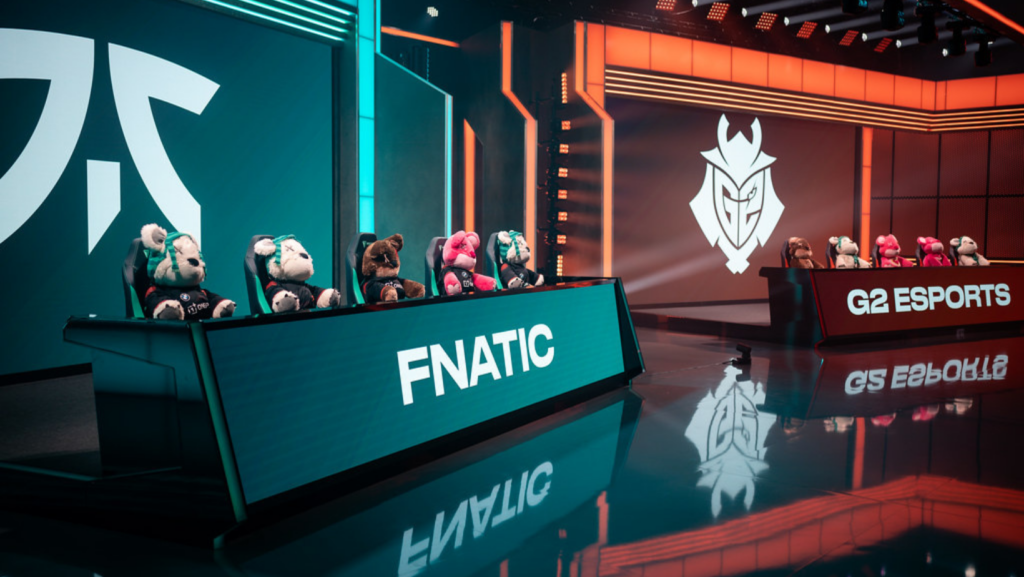In the dynamic world of eSports, no game has made a more significant splash than League of Legends. With its rich lore, strategic gameplay, and thrilling tournaments, it’s no wonder that league of legends esports stat has become a global phenomenon. But what’s behind the success of this game? The answer lies in the numbers.
Diving into the statistics of League of Legends eSports stats reveals a fascinating landscape. From player performance metrics to tournament viewership, these stats paint a vivid picture of the game’s competitive scene. They’re not just numbers, they’re the pulse of a community that’s millions strong.
League of Legends Esports Stats
Delving deeper into the realm of League of Legends esports stats, the understanding of game statistics becomes crucial. Statistics give a detailed perspective on the game’s competitive ecosystem that helps players, coaches, analysts, and fans alike.
Analyzing League of Legends Esports Stats
 Unraveling the nuances of League of Legends esports demands a deep dive into the statistical realms of player and team performance. These analytics offer insight into the strategic layers of the game, contributing to predictive modeling, fan engagement, and assessment of tactical depth.
Unraveling the nuances of League of Legends esports demands a deep dive into the statistical realms of player and team performance. These analytics offer insight into the strategic layers of the game, contributing to predictive modeling, fan engagement, and assessment of tactical depth.
Analyzing a player’s effectiveness demands a glance at several performance metrics. Kill/Death/Assist (KDA) ratio, an integral parameter, sheds light on a player’s contribution to eliminating opponents, minimalizing their own losses, and assisting team members in their kills. A high KDA ratio often pinpoints a player exhibiting optimal gameplay.
Gold Per Minute (GPM) showcases the player’s efficiency in obtaining in-game currency, thereby mapping their capacity to acquire game resources and gain a competitive edge. Conversely, Damage Per Minute (DPM) measures the player’s offensive contribution to the match, highlighting their prowess in assaulting opponents.
Top Statistics in League of Legends Esports
 Engaging further into the world of League of Legends Esports stats, this section unpacks some of the stellar statistics and records achieved so far. The focus also shifts onto the exceptional player stats underscoring certain individual performances.
Engaging further into the world of League of Legends Esports stats, this section unpacks some of the stellar statistics and records achieved so far. The focus also shifts onto the exceptional player stats underscoring certain individual performances.
League of Legends Esports stats has witnessed remarkable records over its lifespan. Most notably, Edward Gaming holds the record for the most wins in a single season with a staggering 58 victories in the LPL 2016 summer split. Simultaneously, the Mid-Season Invitational 2015 is remarkable as the longest eSports match, standing at an astonishing 74 minutes and 59 seconds between Fnatic and SK Telecom T1. It’s also noteworthy that Lee “Faker” Sang-hyeok has the highest earnings of any League of Legends player, raking in over $1.25 million from prize money alone.
| Record | Holder | Description |
| Most Wins in a Single Season | Edward Gaming | 58 wins in the LPL 2016 Summer Split |
| Longest Match | Fnatic vs. SK Telecom T1 | 74 minutes and 59 seconds during the 2015 Mid-Season Invitational |
| Highest Earnings | Lee “Faker” Sang-hyeok | >$1.25 million from prize money |
Spotlight on Exceptional Player Stats
Delving into individual achievements, prominent League of Legends professionals have registered astounding statistics. For instance, Uzi has the highest CS per minute (CS/M), with an average of 10.7. This signifies his extraordinary ability to farm gold and experience quickly, pivotal for his team’s success. Similarly, Bjergsen boasts an impressive lifetime KDA ratio of 5.66, emphasizing his consistently superior performance in killing, assisting, and dying as infrequently as possible.
| Player | Statistic | Record |
| Uzi | CS/M | 10.7 |
| Bjergsen | KDA ratio | 5.66 |
How to Use League of Legends Esports Stats for Predictions
 Making sense of the dynamics in League of Legends esports stats requires a strategic approach. Harness eSports stats to develop predictions and understand both player performance and trends.
Making sense of the dynamics in League of Legends esports stats requires a strategic approach. Harness eSports stats to develop predictions and understand both player performance and trends.
Parsing out patterns and trends from League of Legends esports stats offers a competitive advantage. For instance, a repeated spike in Bjergsen’s KDA ratio during mid-game fights implies his potential to change the game. Similarly, observing stats like Edward Gaming’s 58 wins could indicate a pattern of success in a single season, possibly hinting at their consistent team dynamic and performance.
Besides prediction, esports stats harbor many benefits. One, these stats deliver fans insights into team and player achievements, increasing their engagement with the game. Two, stats like GPM, DPM, and CS help capture the game’s depth and complexity, encouraging strategic play.

